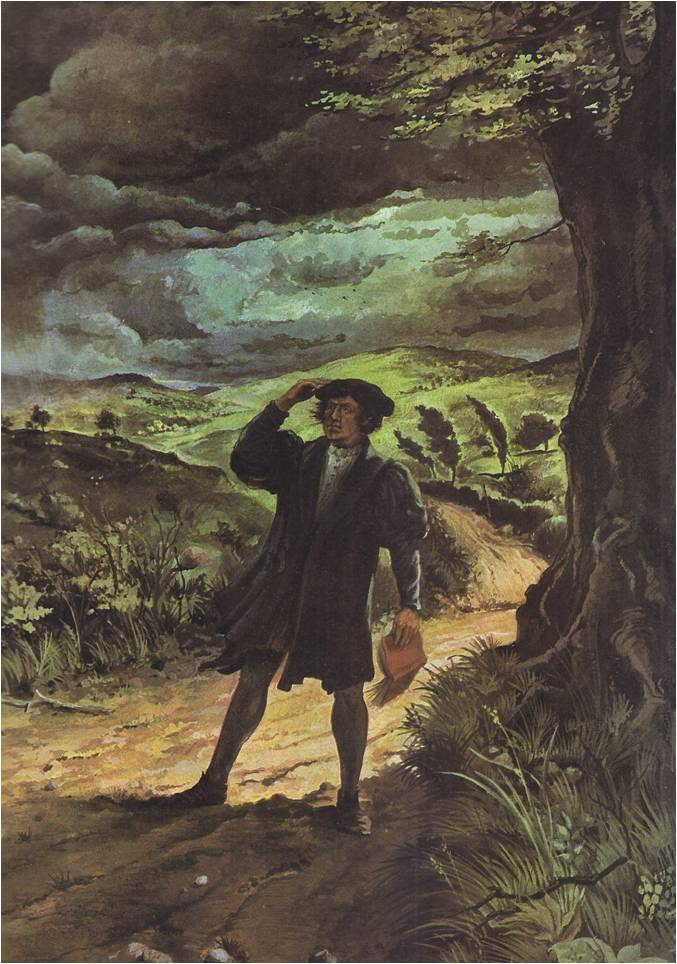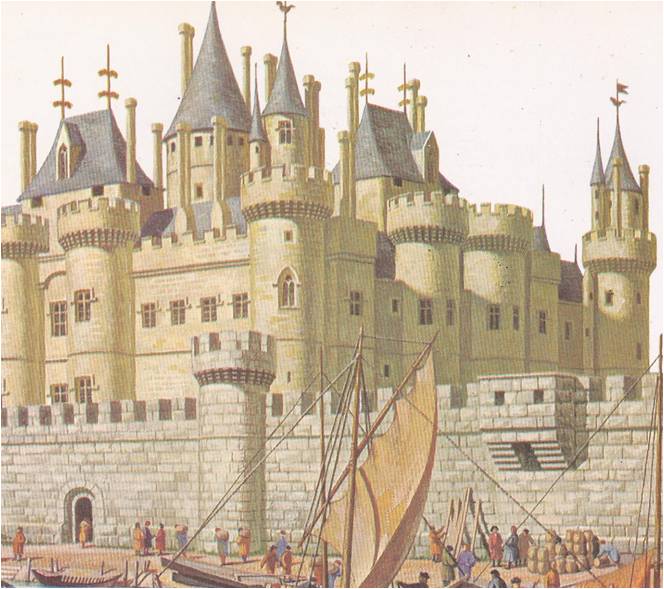WHILE THE Industrial Revolution was transforming England and creating a new kind of society, the continent of Europe seemed to be going backward instead of forward. After Napoleon’s defeat in 1815, the monarchs and aristocrats brought back the principle of “legitimacy.” Legitimacy meant that only kings, aristocrats and the established church had the right to rule and that the people must obey them without question. The American and French revolutions had been fought to overthrow the principle of legitimacy. The idea behind these revolutions was that governments were created by the people. As the Declaration of Independence put it, all …
Read More »Emperor of the French 1804 -1815
On December 2, 1804, in a ceremony of great pomp and splendour at the cathedral of Notre Dame in Paris, Napoleon Bonaparte was crowned Napoleon I, Emperor of the French. Pope Pius VII was there. He had come from Rome to offer his blessing and to place the crown on the head of the new emperor but Napoleon did not do what was expected of him. Instead of kneeling, he took the crown from the Pope’s hands and put it on himself. He also placed a crown on the head of his wife, Josephine. Only twelve years had passed since …
Read More »The Rise of Napoleon Bonaparte 1796-1802
In March of 1796, a new commander named Napoleon Bonaparte was placed in charge of the French army on the Italian front. The soldiers and officers were amazed when they first saw him. He was short, thin, pale, only twenty-seven years old and spoke French with an Italian accent. Napoleon was not an unknown. He had first come to public attention as the young artillery officer who drove the British fleet from the harbour at Toulon. Later, as a brigadier general, he had successfully defended the Convention from an uprising in Paris. What most people did not know was that …
Read More »The War Spreads 1625 -1648
THE BLOOD-LETTING in Germany aroused new ambitions in many of the kings of Europe. In Denmark and Sweden, the strong Protestant king: who were taming opposition at home began looking to Germany as a land ripe for conquest. Furthermore, in attacking Germany they were also attacking the hated power of Roman Catholicism. Quickest of all to act was Christian IV, king of Denmark. Christian did not doubt that he was equal to the task. At the age of five he had learned fencing and the use of firearms‚ waking at five each morning and practicing long hours. He became king …
Read More »A New World and a New Sea 1492-1522
ALONG THE DUSTY SPANISH road leading north from Granada plodded a mule. On its back, bouncing and cursing his luck, sat a glum Italian sea captain. Four years before, Captain Cristobal Colon — the English would call him Christopher Columbus — had come to Spain on horseback, like a gentleman. He had been received at court, granted audiences with King Ferdinand and Queen Isabella and invited to describe his daring plan to sail west across the Ocean Sea to India. Royal advisers had asked to study his maps and the charts on which he had plotted a course and he …
Read More »Defender of the Faith 1521 – 1603
OF ALL THE RULERS OF EUROPE, none was more eager to please the pope, more anxious to prove himself a loyal son of the Church, than Henry VIII, the handsome young monarch of England. Henry was one of the first to offer his soldiers when the pope formed a Holy League to fight the Turks (and to frighten off the French kings, who had developed the unfortunate habit of invading Italy every few years). Henry never actually sent the troops. To show that he meant well, he wrote a strongly worded book about the duties that men owed the pope …
Read More »The Monk from Wittenberg 1505-1546
ON A SULTRY JULY DAY IN 1505, a young law student, Martin Luther, was walking along a country road in Germany when a summer storm blew up. The air grew heavy and black clouds filled the sky. Before Luther could take shelter, thunder began to crash. A bolt of lightning struck the road almost at his feet. Thrown to the ground, he lay shaking, not certain whether he was alive or dead. “Help me, Saint Anne,” he cried, “help me and I will become a monk.” After a moment, Luther’s trembling stopped. He stood up, found that he was not …
Read More »The Walls Come Tumbling Down 1300-1415
IN THE MIDDLE AGES, when knights fought wars in Europe’s fields, robbers roamed the roads and the dark forests seemed filled with unknown dangers, men put their trust in walls. Around each little town rose ramparts of massive stonework, a strong defense against the evils outside. Within the safety of the wall was a crowded little world, complete in itself — a castle‚ a church, a monastery or two, a marketplace and a tangle of cobbled streets lined with the thatch-roofed houses of townsmen. In such a town a man knew his place. He was a nobleman or a knight, …
Read More »The Italian Kings of France 1494 – 1590
In all Europe there was no greater admirer of Italy than Francis I, king of France. Francis practiced Italian manners in his court, built Italian palaces in his parks and kept Italian books in his library. He collected Italian paintings and the artists who painted them. Indeed, the king admired Italy so much that he wanted to conquer it all. Francis was not the first ruler to feel these strong Italian longings. In England, Spain and Germany, kings and princes were busily remodeling their courts, their castles and themselves in the Italian manner. Though the little states of Italy were …
Read More »The Town and the Guild 1100 -1382
ONE FINE SPRING MORNING, in the French town of Troyes, in the county of Champagne, a bell rang out through the clear air. The people streaming along the road to the town knew why the bell was ringing; it signaled the start of another day of the fair. Now they walked faster or whipped up their horses, anxious not to miss any of the excitement. Most of them were merchants, who had come to buy the goods that were on display. Some were lords and ladies, who hoped to find gleaming silks from the Orient, or fine Spanish leather, or …
Read More »








